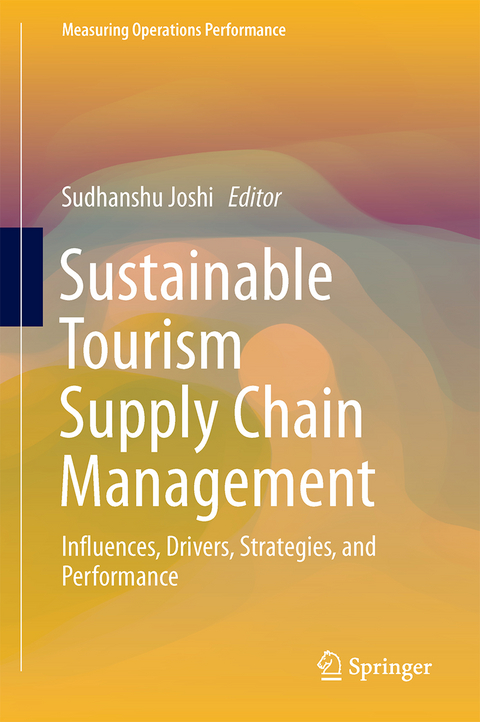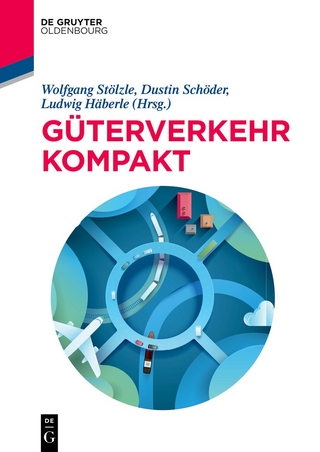
Sustainable Tourism Supply Chain Management
Springer International Publishing (Verlag)
978-3-030-20993-3 (ISBN)
- Titel wird leider nicht erscheinen
- Artikel merken
This book comprehensively examines all aspects of sustainable supply chain management within the tourism industry, offering clear explanations of relevant concepts and closely scrutinizing the complexities of the tourism supply chain and its sustainability. A particularly important feature is the detailed analysis of the relationship between the sustainable tourism supply chain and policy drivers, policies, and strategies. Here, it focuses on the significance of a suitable strategic direction and the formulation and implementation of appropriate policies.
Recent years have witnessed dynamic development in the tourism supply chain, comprising a network of tourism organizations that participate in diverse activities and in the development and delivery of tourism products and services. As such, sustainable management of this chain is becoming a key concern. This book is a valuable source of up-to-date information on sustainable tourism operations and performance, assisting practitioners and policymakers in case analysis and strategic planning.
Dr. Sudhanshu Joshi is a Reader in Operations & Supply Chain Management and Adjunct Faculty for Technology Management with the School of Technology, Doon University, India. He is a member of the editorial boards of Technology and Operations Management Journals published by Elsevier, Springer, Emerald, Inderscience and IGI Global. His research interests are anchored within Digital-Twin, Cyber Supply Chain Management with special focus on green supply chain network design, sustainable supply chain design, and coordination in humanitarian supply chain network, application of big data analytics in sustainable and, emerging technologies (Including Industry 4.0), Circular Economy, Agriculture Supply Chain and Soft computing Applications in Supply Chain Management. Dr. Sudhanshu Joshi has also edited book series including 'Intelligent Systems Reference Library' and 'Greening the Industry'. He is a member of CSI, IEEE, POMS, and INFORMS societies.
lt;p>Part I : Introduction and a Strategic view of Tourism Supply Chain Management
1. The Role of Tourism Supply Chain Management in Economy and Organization
Learning Objectives
Introduction
1.1 What is Tourism Supply Chain Management
Evolution of Tourism Supply Chain Management
1.2. Key Concepts of Tourism Supply Chain Management
Critical Issues in Tourism Supply Chain management
Decisions in Tourism Supply Chain management
1.3. The Importance of the Tourism Supply Chain management (TSCM)
1.4. Enablers of TSCM Performance
Improvement in Information and Communication Technology
Role of Tourism Supply Chain Partners
Enhancement of TSCM by Inter-Firm Coordination Capabilities
1.5. Tourism Supply Chain Performance and PotentialTourism Supply Chain Potential- Global Landscape.
Tourism Supply Chain Potential - South Asian Perspective
Tourism Supply Chain Performance, Potential in India
Tourism Supply Chain Challenges
1.6. Theoretical Framework on TSCM ( till 2019)
1.7. Summary
Discussion Questions
2. Tourism Supply Chain Strategy and Performance Measures - I
Learning Objectives
Introduction
2.1 Tourism Demand Management
Tourism Service and Cost Trade-offs
Tourism Supply Chain (TSC) Responsiveness
Delivery Reliability
Product Variety
1.2. Role of Forecasting in TSC
Characteristics of Forecasts
Time Horizon of ForecastingForecasting in TSCM
2.3. Collaborative TSC Forecasting
2.4. Qualitative Forecasting Methods
The Delphi Approach
Market ResearchLife Cycle Analogy
Informed Judgment
Qualitative Forecasting Methods in Tourism Research
2.5. Quantitative Methods
Time-Series Method
Causal Models
Forecast Error
Quantitative Forecasting Methods in Tourism Research
2.6. Time-Series Forecasting Methods in Tourism Research
Case 1: Forecasting Level FormCase 2: Forecasting the trend Form
Case 3: Forecasting Seasonality
Case 4: Forecasting combination of Seasonality and Trend Data Prepration for Building time series Models
2.7. Collaborative forecasting System Design
2.8. Behaviorial Issues in Tourism Forecasting
2.9. Summary
Discussion Questions
3. Tourism Supply Chain Strategy and Performance Measures - II
Learning Objectives
Introduction
3.1 Tourism Supply Chain Performance Measure
Benchmarking Tourism Supply Chain Performance using Financial Data
3.2. Linking Tourism Supply Chain and Performance
Challenges with TSC Coordination
Conflicting Objectives
Cost of Poor Information Sharing
Coordination Mechanism
Information Sharing among TSC partners
3.3. Enhancing TSC Performance
TSC Optimisation
TSC Integration
TSC Restructuring
3.4. Summary
Discussion Questions
4. Outsourcing Decision in Tourism
Learning Objectives
Introduction
4.1 Make Versus Buy: The Service Perspective
Identification of Core TSC processes
Business Models in TSC
Servitisation Concept in Tourism
4.2. Make Versus Buy: The Strategic Perspective
Product- Service Continumm in Tourism Industry
4.3. Market versus Hierarchy
Economies of Scale
Agency CostTransaction Cost
Incomplete Contracts
Integrative Framework of Market versus Hierarchy
4.4. Make-Versus-Buy Continuum
TSC Partner, Collaboration and Relationship4.5. Sourcing Strategy in Tourism Supply Chain: Portfolio Approach
Reconfiguring the TSC
4.6. Impact of Internet on Sourcing Strategy in TSC.
4.7 Summary
Discussion Questions
Part II : Managing Material Flow in Tourism Supply Chains
5. Capacity and Inventory Issues in TSCM
Learning Objectives
Introduction
5.1 What is tourism Capacity Management
5.2. Overbooking Strategy
5.3. Revenue Management
5.4. Summary
Discussion Questions
Part III : Managing Information Flow in Tourism Supply Chains
6. Information Technology in Tourism Supply Chain Management
Learning Objectives
Introduction
6.1 Enabling Tourism Supply Chain Management through Information Technology
IT in Tourism Supply Chain Transaction ExecutionIT in TSC Collaboration and Coordination
IT in TSC Decision Support
IT in TSC measurement and Reporting
6.2. Strategic Management Framework for IT Adoption in Tourism Supply Chain Management
6.3. TSCM Application Marketplace
6.4. Future Trends in TSCM
Discussion Questions
7. Tourism Supply Chain Competition and Competitiveness - I
Learning Objectives
Introduction
7.1 Tourism Supply Chain Competition
7.2. Game Theory and its application to TSC Competition
7.3. Competition in a tourism Supply Chain
7.4. Summary
Discussion Questions
8. Tourism Supply Chain Competition and Competitiveness - I
Learning Objectives
Introduction
8.1 Tourism Supply Chain Versus Chain Competition
8.2. Game Theory Framework
8.3. Impact of Tourism Supply Chain Membership
8.4. Impact of Tourism Supply Chain Preference
8.5. Impact of Cross-Sector Integration
8.6. Impact of Inter-Sector Integration
8.7. Summary
Discussion Questions
Part IV : Tourism Supply Chain Innovation
9. Tourism Supply Chain Integration
Learning Objectives
Introduction
9.1 Internal Integration
Centralized TSC Systems
Decentralized TSC Systems
Hybrid TSC Systems
9.2. External Integration
Enablers in External TSC Integration
Barriers in External TSC Integration
Discussion Questions
9.3. Tourism Supply Chain External Integration
Vendor Managed TSC Inventory
Efficient Customer Response
CPFR
9.4. Summary
Discussion Questions
10. Tourism Supply Chain Restructuring -I
Learning Objectives
Introduction
10.1. TSC Mapping
Value -addition Curve
Point of Difference
10.2. Tourism Supply Chain Process Restructuring
10.3. Postponement Strategy in tourism Supply Chain
10.4. Changing the Shape of the Value-Addition Curve
10.5. Summary
Discussion Questions
11. Tourism Supply Chain Restructuring -II
Learning Objectives
Introduction
11.1.Tourism Supply Chain and Distribution Channels
11.2 Channel Intermediaries11.3. Tourism Distribution Channel Structure
11.4. Tourism Distribution Channel Development
11.5. Tourism Distribution Channel Members
11.6. Summary
Discussion Questions
Part V : Influences on Tourism Supply Chain Management
12. Customer Relationship Management in TSCs
Learning Objectives
Introduction
12.1. Definitions of CRM
12.2 Major Components of CRM
12.3. Customer Service Management in Tourism
12.4. Electronic CRM
12.6. Summary
Discussion Questions
13. Sustainability in Tourism Supply Chain -I
Learning Objectives
Introduction
13.1 Definitions of Sustainable TSC
13.2 Major Components of Sustainable TSC
13.3. Concept of Triple Bottom Line (TBL) for TSC
13.4. Tourism Policy, Practices and Sustainability
12.6. Summary
Discussion Questions
14. Sustainability in Tourism Supply Chain -II
Learning Objectives
Introduction
14.1 Collaborative TSC Planning and Forecasting
14.2 TSC Collaboration
14.3. TSC Dynamics
14.4. Integrating Products, Service, with TSC Design
14.5. Responsive Tourism Supply Chain Networks
14.6. Sustainable Income Generating Activities in tourism Industry- Case I
14.7. Sustainable Income Generating Activities in tourism Industry- Case II
14.8. Summary
Discussion Questions
| Erscheint lt. Verlag | 11.10.2022 |
|---|---|
| Reihe/Serie | Measuring Operations Performance |
| Zusatzinfo | Approx. 280 p. |
| Verlagsort | Cham |
| Sprache | englisch |
| Maße | 155 x 235 mm |
| Themenwelt | Wirtschaft ► Betriebswirtschaft / Management ► Logistik / Produktion |
| Schlagworte | Public policy and tourism • Service operations in tourism • Strategic management in tourism • sustainability in tourism • Sustainable tourism operations • Tourism supply chain management |
| ISBN-10 | 3-030-20993-8 / 3030209938 |
| ISBN-13 | 978-3-030-20993-3 / 9783030209933 |
| Zustand | Neuware |
| Haben Sie eine Frage zum Produkt? |
aus dem Bereich


